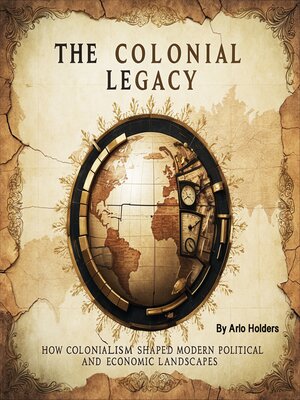The Colonial Legacy
audiobook (Unabridged) ∣ How Colonialism Shaped Modern Political and Economic Landscapes
By Arlo Holders

Sign up to save your library
With an OverDrive account, you can save your favorite libraries for at-a-glance information about availability. Find out more about OverDrive accounts.
Find this title in Libby, the library reading app by OverDrive.



Search for a digital library with this title
Title found at these libraries:
| Library Name | Distance |
|---|---|
| Loading... |
Colonialism has been a defining force in shaping the modern world, leaving an indelible mark on political systems, economic structures, and cultural identities. At its core, colonialism is the practice of domination, where one nation establishes control over another, often exploiting its resources and people for economic and political gain. While the phenomenon of colonialism spans centuries, its modern form gained momentum during the Age of Exploration in the 15th and 16th centuries, when European powers began venturing across the globe in search of wealth, land, and influence.
The roots of colonialism lie in the desire for expansion and power. Early explorers like Christopher Columbus, Vasco da Gama, and Ferdinand Magellan set the stage for European empires to claim vast territories across Africa, Asia, and the Americas. These expeditions were often justified by a mix of economic motives, religious zeal, and a belief in cultural superiority. The promise of lucrative trade routes, access to valuable resources such as spices, gold, and silver, and the opportunity to spread Christianity drove these early ventures. Over time, colonial ambitions evolved into fully-fledged empires, with nations like Britain, Spain, Portugal, France, and the Netherlands establishing global dominance.
Colonial rule profoundly altered the political and social structures of the colonized regions. Indigenous governance systems were often dismantled and replaced with centralized administrations that reflected the interests of the colonizing power. This shift not only disrupted traditional ways of life but also laid the foundation for many of the political challenges faced by former colonies today. Economically, colonies were exploited for their resources, creating a system of wealth extraction that enriched the colonizers at the expense of local populations.







